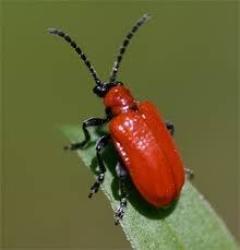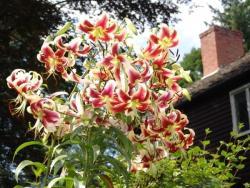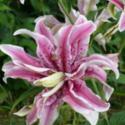Each year we have to keep a close eye on our lilies for a small red insect, the lily leaf beetle. They will eat holes in the leaves and, left uncontrolled, will eat the entire plant. At the first sign of them, we must use a systemic insecticide and repeat after 2 weeks. Other than that, we have dozens of lilies that multiply with little or no care. They make the most dramatic effects in our gardens with hundreds of blooms.




